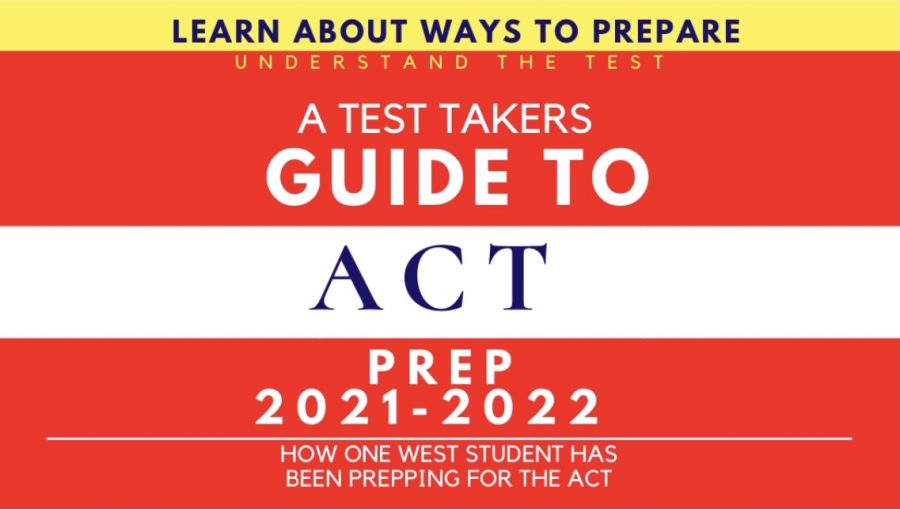A Test Takers Guide to ACT Preparation
Getting back into the school year, more and more ACT dates are being offered, heres how some students prep.
September 10, 2021
ACT testing season is now upon students; testing started Saturday and goes through July 16, 2022. Every college-bound high school student takes this grueling 215 question test to show their readiness for college.
Preparing for the ACT is vital; most students cannot reach their goal score without many hours of practice. The options for practice are endless between private tutors, classes, or even self-teaching.
Senior Andie Armstrong has taken the ACT twice and plans to take it again on Sunday. She has been practicing for the test in multiple ways.
“I took Mr. Flynn’s ACT prep class and that was good,” Armstrong said. “I also go through practice tests in the ACT book on my own, just for 30 minutes a day.”
It’s important to know which style of teaching works best for you. If you prefer an in-person tutor or an In-person group class, it might be beneficial to talk to Mr. Flynn about when his next prep class is.
If you are more of a self-paced learner, or want to work with a virtual tutor some of the more effective ACT preparation guides are Princeton Review (https://www.princetonreview.com ), Higher Scores Test prep, (https://www.higherscorestestprep.com/online-act-prep/), Kaplan (https://www.kaptest.com/act ), and PrepScholar (https://www.prepscholar.com/act/a/dashboard ) These resources would all be great for ACT preparation and usually cost between $99-$1,549. Though, there are many free resources you can utilize such as the official website of the ACT(https://www.act.org/content/act/en/products-and-services/the-act/test-preparation/free-act-test-prep.html), Varsity Tutors (https://www.varsitytutors.com/act-practice-tests ), and
Number2 (https://www.number2.com/ )
The four sections of the ACT, (English, math, reading, and science, can be difficult for a lot of students taking the test, but for some the hardest parts of test day is working under a time constraint.
“I would probably say the hardest part of the ACT is mainly the math section and timing,” Armstrong said.
Timing is a pressure that many students feel, not just Armstrong. If a student knows how to answer every question correctly, but cannot do it within the allotted time they will get a much lower score than a student who can manage their time better. An important factor of studying is making sure you time yourself, so when you get to take the actual test you will be used to going at a quicker pace.
Even if you don’t get your desired score you can always retake the test as long as testing is still available.
“I’m probably going to have to take it one more time,” Armstrong said.
The average test taker takes the test 2-3 times, meaning many kids do not get their desired score the first time.
As students start studying for the ACT it is important that they know their own personal weaknesses, just like Andie knows hers. This helps the test taker change weakness into strengths and get the score they want to achieve. Once that score is reached students will find more success when applying to colleges or scholarships.
If you would like to sign up for the ACT go to this link: https://act.org/content/act/en/register-for-the-act.html?cid=paidsearch:google:pi06-october-national-test-reg-k12-b2c:dc_1730-internal-paid-082121-mr021309-&utm_medium=paidsearch&utm_source=google&utm_campaign=pi06-october-national-test-reg-k12-b2c&utm_content=dc_1730-internal-paid-082121-mr021309-&gclid=EAIaIQobChMIsZGmsbL08gIVUGxvBB2hTQjfEAAYASAAEgI0o_D_BwE
And follow the steps provided.








